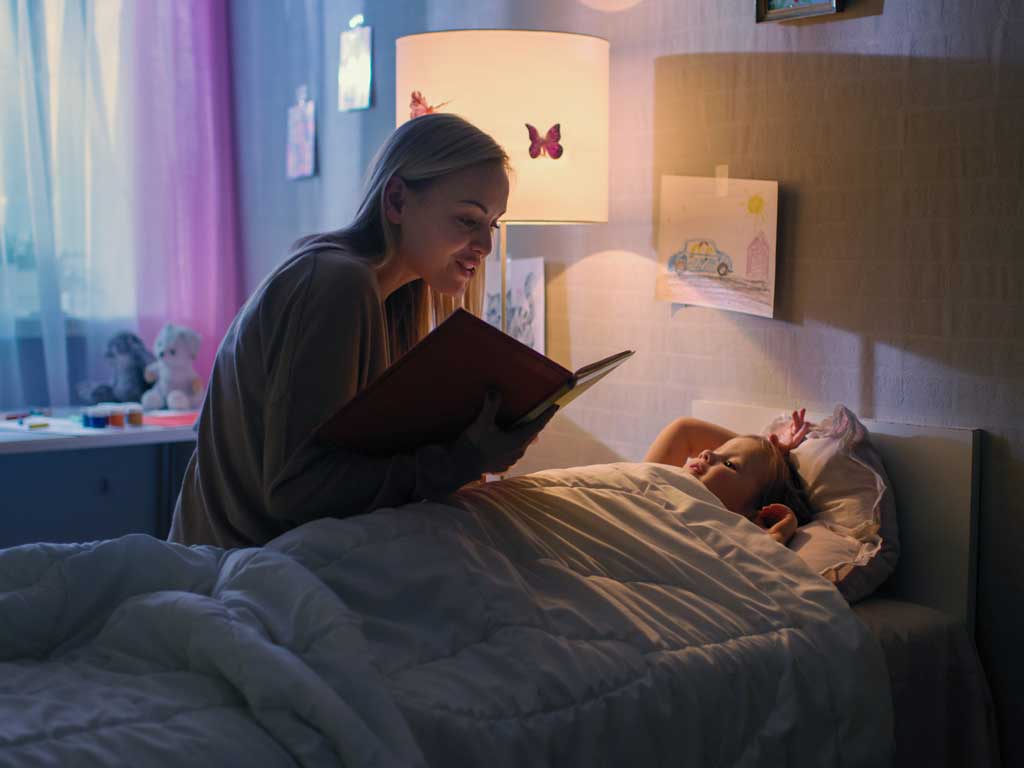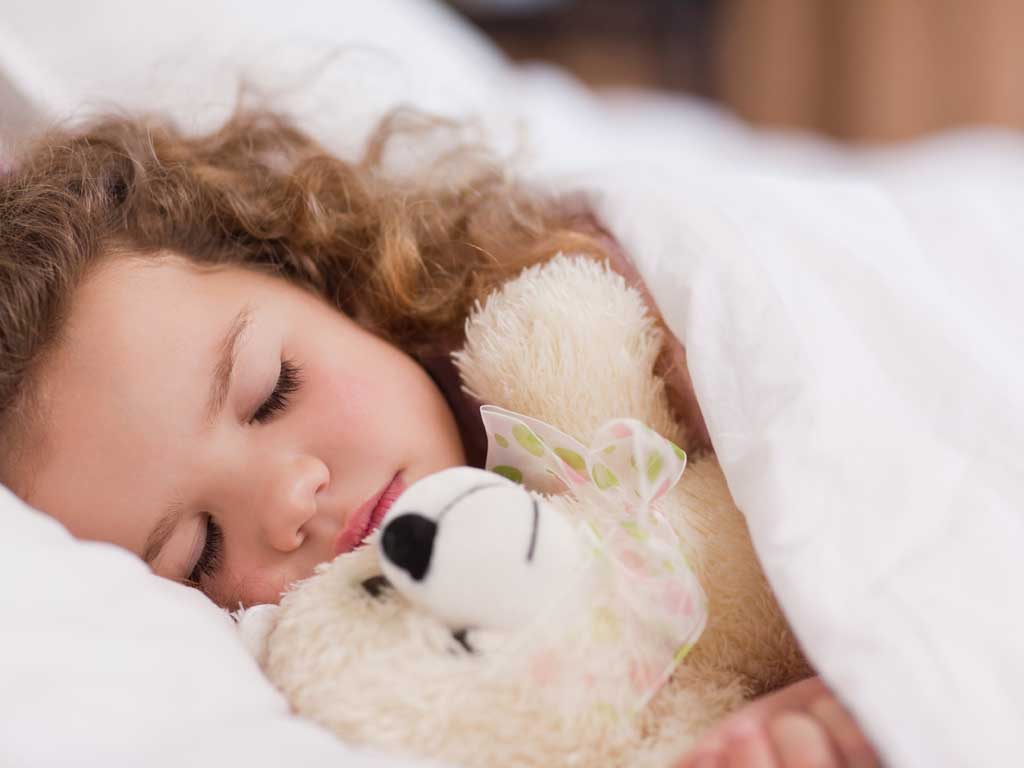by Dr. Vinson Diep and Stephanie Lopes
A newborn baby sleeping soundly may be one of the most peaceful and comforting sights for a parent. Sleep is essential to child development, contributing to happier and healthier children. But with the risks of Sudden Infant Death Syndrome (SIDS) and children who do not always sleep soundly, many parents have questions about safe, restful sleep for infants and young children.
Board-certified pediatrician Dr. Vinson Diep, whose office is located at Kapiolani Medical Center for Women & Children, partners with parents to ensure children sleep soundly and safely. He kindly answered common questions about sleep for young children to inform Hawaii parents.
How much sleep should children of different ages get each night?
It is recommended that children receive a significant number of hours of sleep every day, including overnight sleep and naps throughout the day. Newborns to four-month-olds should have 16 to 18 hours daily. Babies who are four to twelve months need 12 to 16 hours. One to two-year-old toddlers should receive 11 to 14 hours of sleep while three to five-year-olds should have 10 to 13 hours.
Children of elementary age and preteens need around 9 to 12 hours and teenagers should have 8 to 10 hours. Sleep is very important for physical growth, especially during the preteen years.
How can I help my baby to safely sleep through the night and reduce the risk of SIDS?
SIDS is the sudden death of a baby younger than one year old, and it typically occurs when a baby is sleeping. Sadly, SIDS is the leading cause of death among infants, and its ultimate causes are still unknown, although certain factors like smoke exposure have been proven to increase the risk of SIDS. Fortunately, parents can do the following research-backed actions to lessen the risks of SIDS while their child is sleeping.
Babies should be on their backs when they are sleeping – never on their tummies or sides. However, when babies are awake and alert, tummy time is recommended to help with development and to prevent a flat head. As babies get older, they do have the ability to roll over, but parents should always initially set babies in their crib on their backs. If you notice your baby has rolled over while sleeping, there is no need to freak out, but it is okay if you decide to roll them to their backs.
Babies should sleep separately from parents. While falling asleep next to baby in bed might seem comforting for a well-intentioned parent, the American Academy of Pediatrics (AAP) says room-sharing instead of co-sleeping can reduce the risk of SIDS by up to 50 percent when the child is under one-year-old. To reduce the risk of SIDS, babies should be put to sleep in a completely separate environment from parents, such as a crib, bassinet, or pack-and-play; however baby’s bed can be in the same room as where the parent sleeps. Room-sharing can contribute to comfort for parents as well as convenience when feeding, watching, and caring for baby without actually sharing the same bed.
What should a baby bed look like? The safest baby beds have a flat and firm mattress with a nicely fitted sheet over the mattress. To reduce the risk of SIDS, baby beds should not have extra pillows, blankets, or stuffed animals, and they should not be constructed of memory foam or be extra plush.
If my baby falls asleep in the car seat or stroller, should I leave them there? No, it is safer to move your baby back into bed as soon as you can.
Breastfeeding has also been proven to reduce the risk of SIDS. Pacifiers have also been shown to reduce the risk of SIDS. However, I usually tell parents to introduce pacifiers after breastfeeding is established.

Should I wake my baby to feed?
Newborn babies need consistent nutrition for their growth and development and are used to a constant supply of food through the placenta and umbilical cord. It is important to feed your baby every two to three hours. Babies are usually good at self-regulating, and will typically wake up throughout the night for feeding on their own. It is recommended to not let newborns go more than four hours without feeding.
When does constant waking up to feed stop? When babies are typically around two months old, they can begin to sleep through the night (although not all do), which is defined as about six hours of uninterrupted sleep.
How much should my baby wear to bed?
Some parents worry about over bundling their baby or – vice versa – baby being cold at night. A general rule is that babies only need one more layer than an adult under similar circumstances. This means if a parent is only wearing pajamas to bed with no blanket, a baby would be wearing clothes with only one swaddle or blanket.
My child has problems falling asleep. What are some tips to help?
Rocking a baby can help them go to sleep. However a typical pitfall for parents is rocking a baby to sleep in their arms, and then once the baby is sleeping, they transfer them to their cribs; when the baby wakes up in a different place than where they fell asleep this can be jarring, causing the baby to cry. Rock a baby until they are drowsy, and then put them into their crib to prevent the shock of waking up in a different setting.
When a child reaches the ages of one or two, they might still have trouble going to sleep. Parents can start introducing a security object, such as a blanket or stuffed animal. A security object is only recommended after age one due to risks of SIDS before that age, but once children reach that age, they can take their teddy bear to bed to help them fall asleep easier.
For preschool-aged children with troubles sleeping, a consistent bedtime routine can help. At a certain time (even during weekends and school breaks), the bedtime routine should go through different components, such as turning off technology and the television, taking a bath and brushing teeth, and then unwinding with an activity in bed like reading or singing.
Do babies have nightmares?
Yes, babies have nightmares, and those are really normal. Older children can also sleep walk or talk, which typically is not much of a concern.
Children can also have night terrors, which are scarier for parents but often do not pose any health risk. If your child is having a terror, they might look awake, but they are not; parents should not wake the child, and the child will not hear the parents. During a night terror, parents can go into the bedroom to make sure the environment is safe (no sharp corners around) and wait until the episode is over. Usually the child will fall back to sleep safely.
Is snoring for children normal?
For babies, toddlers, or elementary aged children, snoring is normal. Snoring in a young child is usually associated with illness, such as congestion or coughing.
Frequent daily snoring can be due to multiple factors: allergies, enlarged tonsils, abnormal weight gain, exposure to smoking or vaping. If this becomes concerning, parents should contact their pediatrician. Often pediatricians will recommend an oral or nose spray allergy medicine or refer the child to an ear, nose, and throat doctor to assess the snoring further.
Do you hear any pauses in breathing followed by gasping? This might be sleep apnea and can have more negative consequences such as difficulty concentrating in school. Contact your pediatrician if your child is gasping while they sleep.
When should my baby move from the crib to a bed?
Around 18 months to three years old is generally when a baby moves from a crib or pack-and-play to a toddler bed. A key indicator is when the child’s chest is above the level of the top rail; at that time the child may be able to independently climb out of their crib, creating a safety hazard.
How can I learn more about keeping my child safe while they sleep?
For any questions about sleep for children, parents should always ask their pediatrician. Also, a helpful website created by AAP is www.healthychildren.org If you would like to speak more with Dr. Diep, call 808-945-9955 or email pediatrics@doctordiep.com
Sleep is very important for children. Creating a safe environment for children to get a good amount of uninterrupted, restful sleep can help to set the stage for successful physical, emotional, and academic development.





